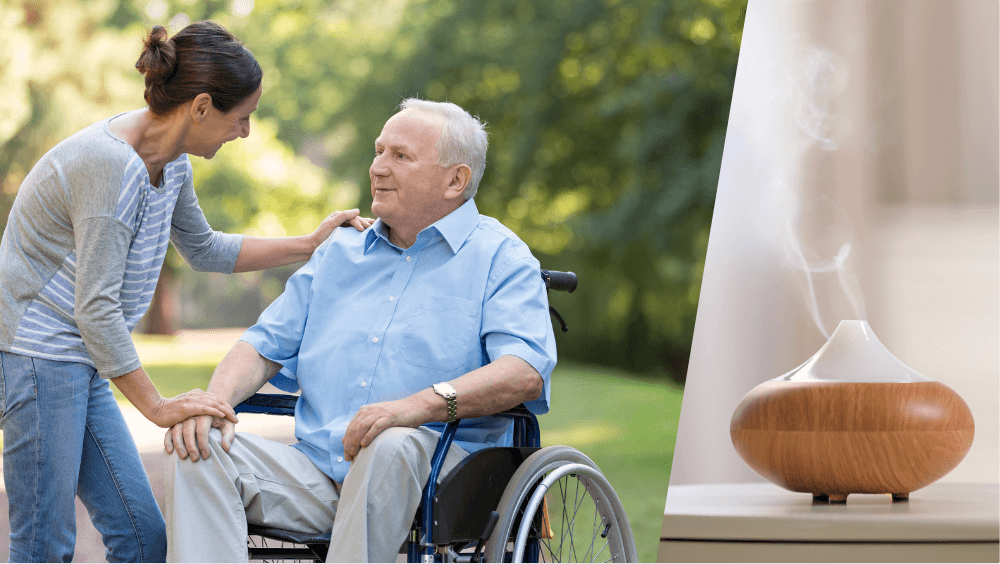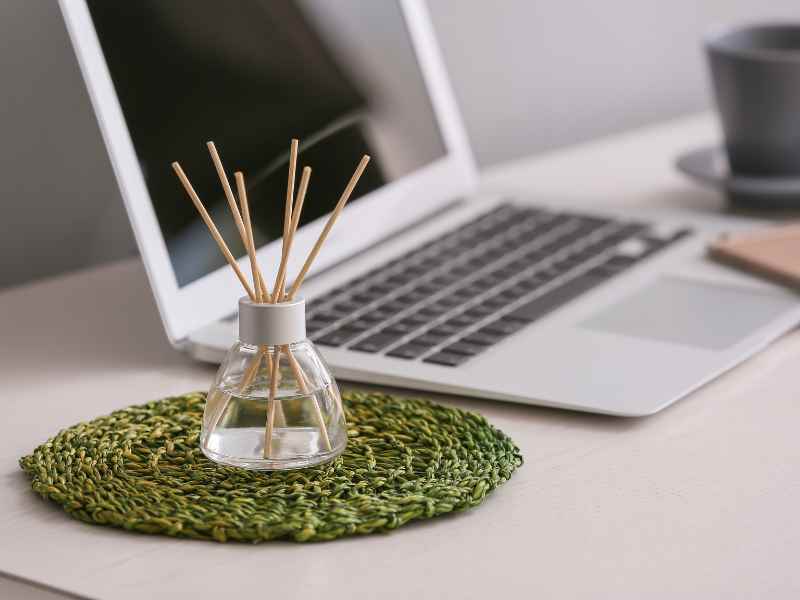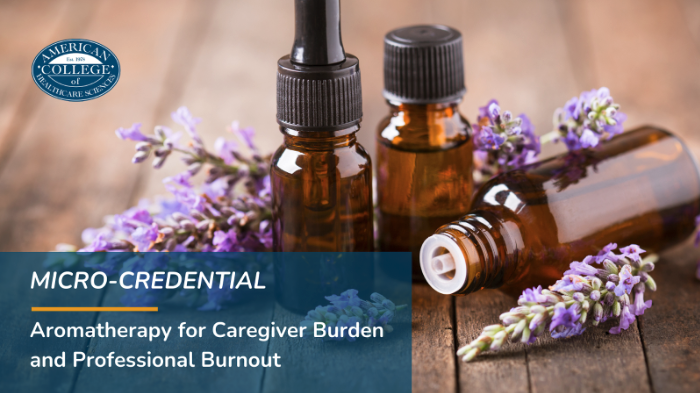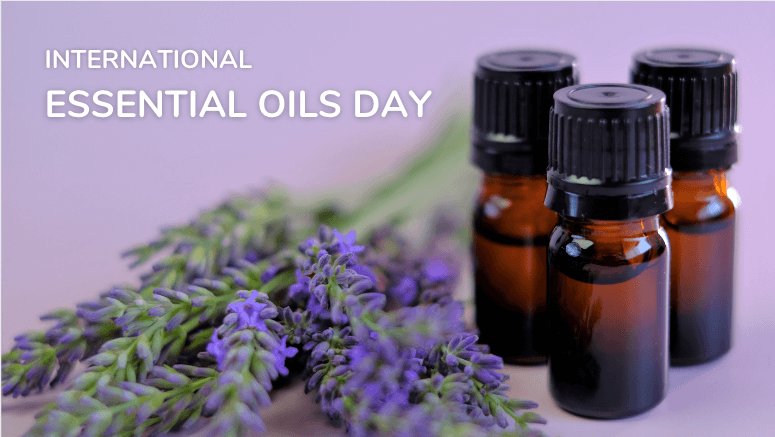Reviewed by Amanda Lattin, ACHS Dean of Aromatherapy
Caregivers are the unsung heroes of our communities, dedicating their time and energy to ensure the well-being of those in need. Caring for a loved one can be a very rewarding yet challenging experience. While the act of caregiving is rooted in compassion and love, it often comes with significant emotional, physical, and psychological strain, commonly referred to as caregiver burden.
Understanding Caregiver Burden
With an aging population and increasing chronic disease rates, healthcare is shifting from hospitals to community and family settings. Family members are crucial in providing long-term care for patients. Research shows that family caregivers experience significant burdens, especially when caring for individuals with mental health illnesses, Parkinson's disease, dementia, and terminal cancer1.
Caregiver burden encompasses the various stresses caregivers face while providing care. This burden can manifest in multiple ways, including:
- Emotional Stress: Feelings of guilt, anxiety, and depression are common among caregivers.
- Physical Strain: Physical tasks can lead to exhaustion and health problems.
- Social Isolation: The demands of caregiving can limit social interactions, leading to loneliness.
- Financial Pressure: Many caregivers face financial challenges due to medical expenses and potential loss of income.
These stressors can significantly impact a caregiver's well-being, making it crucial to find effective ways to manage and alleviate this burden2.
The Role of Aromatherapy
There are several holistic support options that may help alleviate caregiver burden. Aromatherapy, the intentional, safe use of natural plant essential oils to promote health and well-being, is an important component of holistic self-care. The essential oils can be utilized through several methods, such as inhalation and topical applications. Here's how aromatherapy can help caregivers:
- Support Stress and Anxiety
Essential oils like lavender lavandula angustifolia, chamomile chamaemelum nobile, and bergamot citrus aurantium are known for their calming properties. Inhaling these oils or using them in a diffuser can help create a sense of calm and relaxation. - Promotes Good Sleep Quality
Lack of sleep is a common issue for caregivers. Aromatherapy with oils such as lavender and sandalwood santalum album can support quality sleep. - Mood Support
Citrus oils like sweet orange citrus sinensis, lemon citrus limonum, and grapefruit citrus paradisi are known for their uplifting properties. These scents can help maintain an elevated mood and provide a mental boost. - Maintain Focus and Concentration
Essential oils such as rosemary rosmarinus officinalis and peppermint mentha x piperita can help maintain concentration and mental clarity, making it easier for caregivers to manage their responsibilities efficiently. - Alleviating Physical Discomfort
Eucalyptus eucalyptus globulus and peppermint oils can provide relief from physical discomfort and fatigue. These oils can be used in massage or bath blends to soothe sore muscles and rejuvenate the body.
Practical Tips for Using Aromatherapy
- Diffusers: Use an essential oil diffuser to disperse calming scents throughout your home.
- Topical Application: Dilute essential oils with a carrier oil (such as sweet almond or jojoba) and apply them to your skin, focusing on areas like the wrists, temples, and neck.
- Baths: Add a few drops of essential oil to your bath to create a relaxing and aromatic experience.
- Inhalation: Simply inhale the scent directly from the bottle or use an aromatherapy inhaler.
Micro-Credential Explores Aromatherapy for Caregiver Burden
In February of 2024, ACHS launched the innovative micro-credential program Aromatherapy for Caregiver Burden and Professional Burnout. This program explores the key concepts and research that drive the current definitions of caregiver burden and professional burnout. Participants learn who caregivers are, their primary needs, and evidence-based practices for creating successful support strategies. The course also examines the latest research on professional burnout and how aromatherapy can support that growing phenomenon. Read more about this micro-credential here.
Care for the Caregiver
While caregiving is a noble and compassionate role, it's essential for caregivers to take steps to support their own well-being. Aromatherapy offers a natural and effective way to manage the various stresses associated with caregiver burden. By incorporating essential oils into their daily routine, caregivers can create a more balanced and supportive environment for themselves, ultimately enhancing their ability to provide care for their loved ones.
Want to learn more about aromatherapy courses at ACHS? Browse our aromatherapy programs.

This content is for educational purposes only and is not intended to be medical advice. It is not intended to treat, diagnose, cure, or prevent disease. This article has not been reviewed by the FDA. Always consult with your primary care physician or naturopathic doctor before making any significant changes to your health and wellness routine.
Sources:
- Liu, Z., Heffernan, C., & Tan, J. (2020). Caregiver burden: A concept analysis. International journal of nursing sciences, 7(4), 438–445. https://doi.org/10.1016/j.ijnss.2020.07.012
- Adib-Hajbaghery, M., & Ahmadi, B. (2019). Caregiver Burden and Its Associated Factors in Caregivers of Children and Adolescents with Chronic Conditions. International journal of community based nursing and midwifery, 7(4), 258–269. https://doi.org/10.30476/IJCBNM.2019.73893.0





